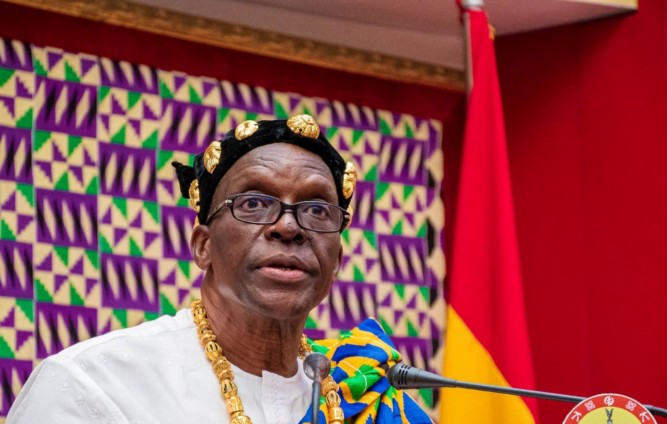The dispute concerning Ghana’s delegation to the Pan-African Parliament centers on the representation of the Minority Caucus and the Speaker’s interpretation of parliamentary procedure. Okaikwei Central MP, Patrick Yaw Boamah, initially designated as an observer to the Parliament, formally withdrew his participation, citing procedural irregularities and a perceived infringement on the Minority’s rights. Boamah argued that his observer status, which severely limits participation in plenary and committee meetings, contradicted the established formula for representation in such delegations. He emphasized that based on the precedent of a 68:32 ratio used for parliamentary committees and the ECOWAS Parliament delegation, the Minority Caucus was entitled to two full members, not merely one full member and an observer. His withdrawal, he explained, was motivated by a desire to prevent potential embarrassment for Ghana’s Parliament on the international stage.
Speaker Alban Bagbin, in response to Boamah’s withdrawal, acknowledged the MP’s concerns but maintained that the existing parliamentary resolution regarding the delegation’s composition remains binding. He emphasized that any alteration to the established delegation requires a formal motion presented to and approved by the House. Until such a motion is successfully passed, the current composition stands. This response underscores the Speaker’s adherence to parliamentary procedure, prioritizing the formal processes of the House over the specific concerns raised by Boamah regarding representational fairness. The Speaker’s stance effectively upholds the status quo, leaving the Minority Caucus with only one full member.
The core of the disagreement lies in the interpretation of the 68:32 ratio, a formula consistently applied in other parliamentary contexts. Boamah and the Minority Caucus argue that this established practice grants them two full representatives in the Pan-African Parliament delegation. The Speaker, while acknowledging the existence of this ratio, prioritizes the formal resolution passed by Parliament, which currently allocates only one full seat to the Minority. This procedural approach, while legally sound, appears to disregard the established convention of proportional representation. This has led to accusations of bias, with some members suggesting that the Speaker is unduly influenced by the Majority party, using its numerical advantage to circumvent established practice.
The controversy extends beyond a mere dispute over numbers. The Minority Caucus perceives the Speaker’s decision as an infringement on their fundamental right to adequate representation. They argue that reducing their representation to a single member undermines their ability to effectively participate in the Pan-African Parliament, potentially silencing their voice on crucial matters. This diminished representation raises concerns about the democratic process within Ghana’s parliament and the equitable participation of minority voices in international affairs. The Minority sees this as a breach of established protocol and a strategic maneuver by the Majority to marginalize their influence.
The situation is further complicated by the historical precedent. According to reports, this is the first instance where the Minority Caucus has been represented by only one member in the Pan-African Parliament. This deviation from established practice strengthens the Minority’s claim of unfair treatment and fuels their suspicion of partisan manipulation. It raises questions about the motivations behind this unprecedented move and the potential implications for future parliamentary delegations. The departure from the norm underscores the seriousness of the dispute and the potential for long-term consequences for Ghana’s representation on the continental stage.
This dispute highlights a broader tension between adherence to formal parliamentary procedures and the need for equitable representation. While the Speaker’s insistence on following established procedures is understandable, it appears to have resulted in an outcome that undermines the principle of proportional representation. The Minority Caucus’s concerns about marginalization and the silencing of their voice warrant serious consideration. This incident underscores the importance of regularly reviewing and refining parliamentary procedures to ensure they remain aligned with the principles of fairness and inclusivity, particularly in the context of representing diverse political viewpoints on international platforms. A resolution to this conflict requires a balanced approach that respects both procedural correctness and the principles of democratic representation.


